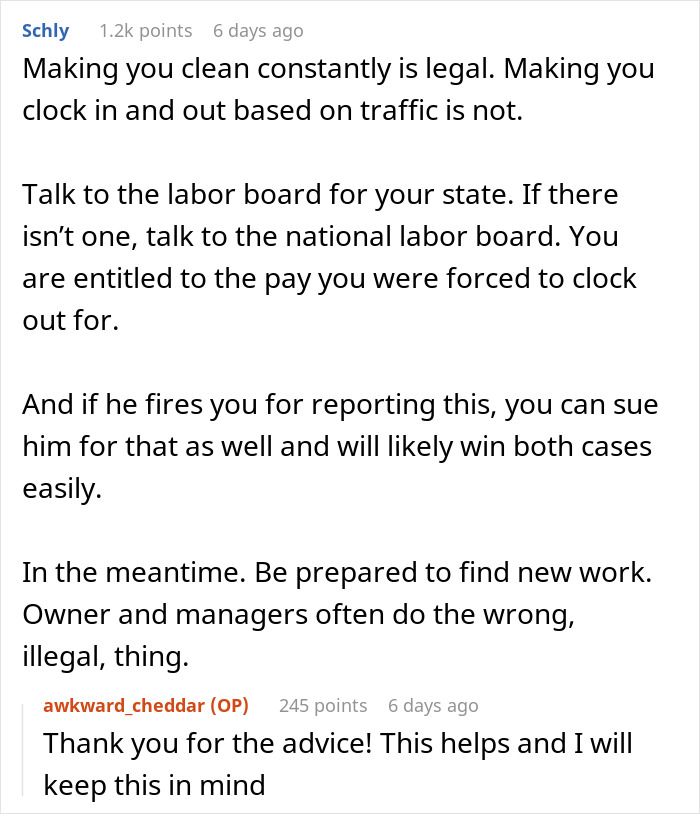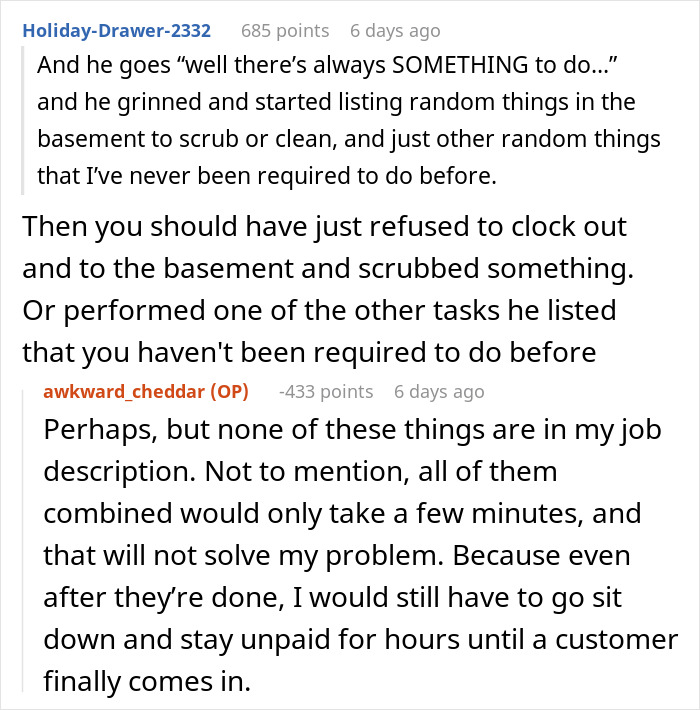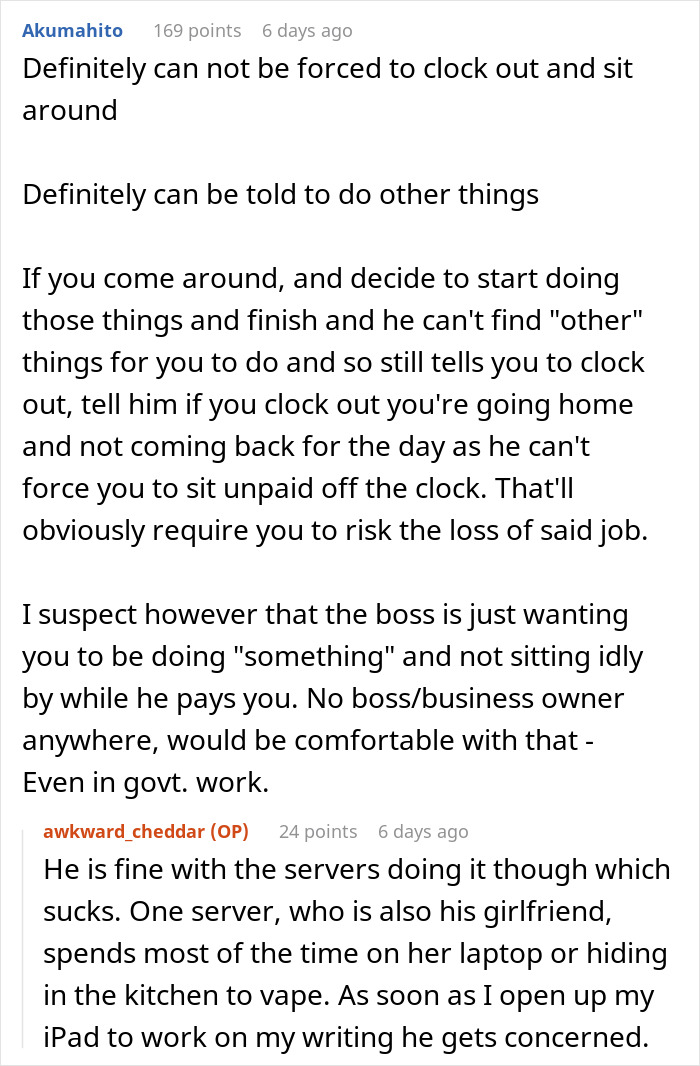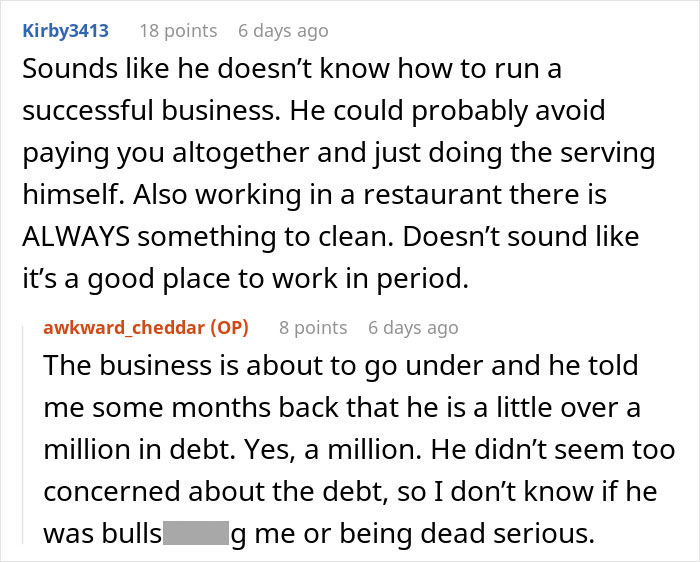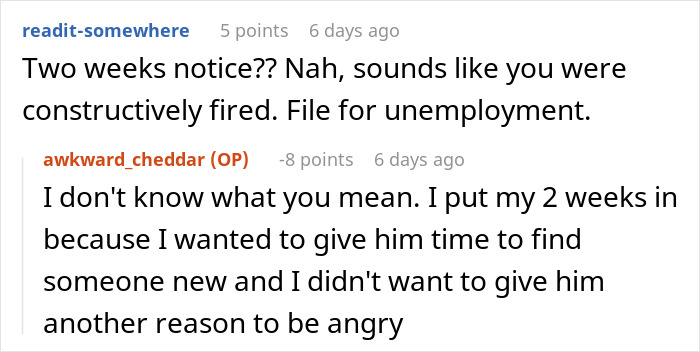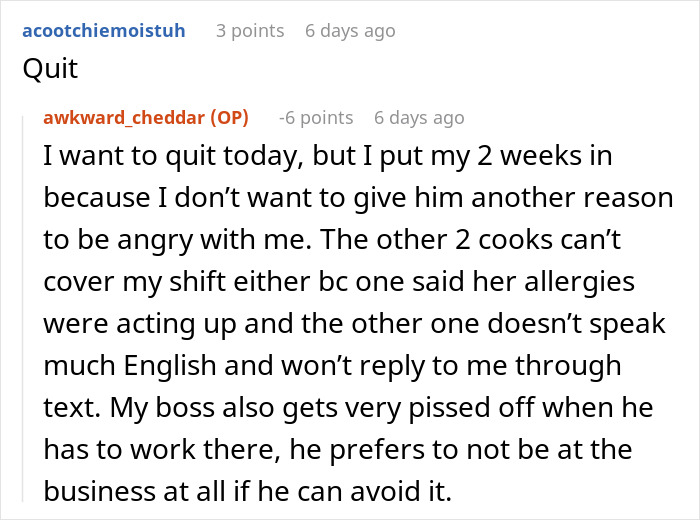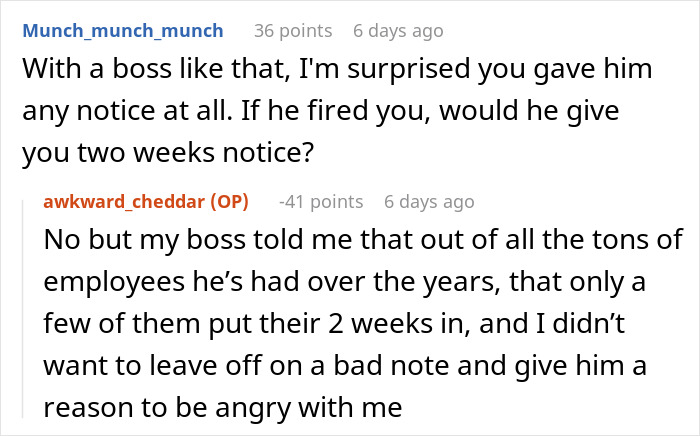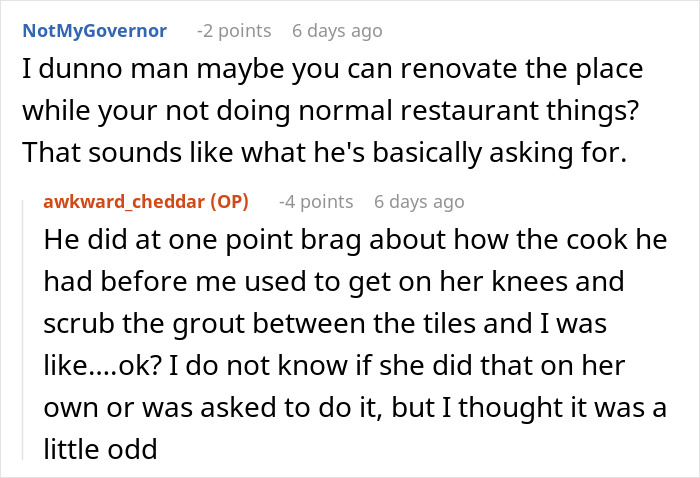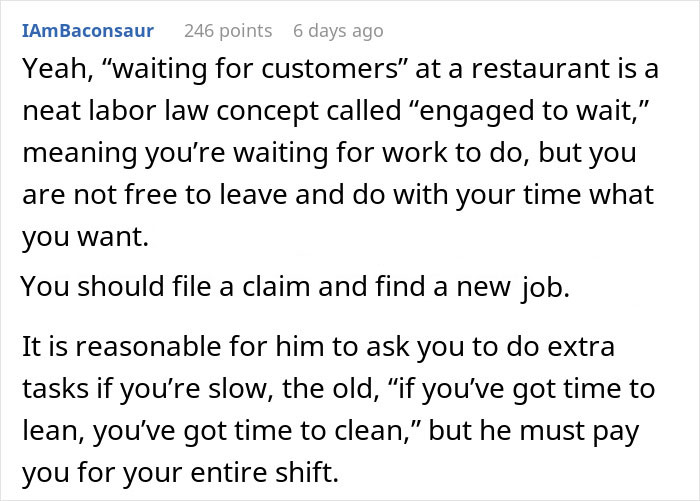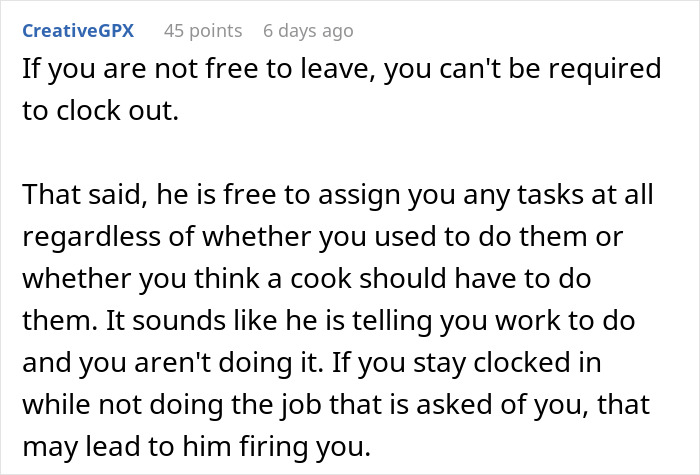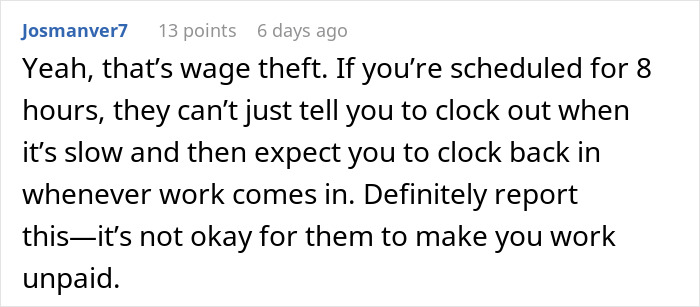For many workers, slow days at work can be a blessing and a curse. On one hand, you get to enjoy a slower pace, usually meaning less stress, but on the other – it’s often when time seems to stand completely still. That is until your boss comes along and gives you something to do, bidding farewell to that brief moment of peace.
This redditor was no exception, as they, too, were told that there is always something to do in the restaurant they were working at. But that wasn’t the main problem; what seemingly bothered the cook even more was the fact that they were asked to clock out when things got slow. Scroll down to find the full story below.
Restaurant workers often have to operate in a fast-paced environment
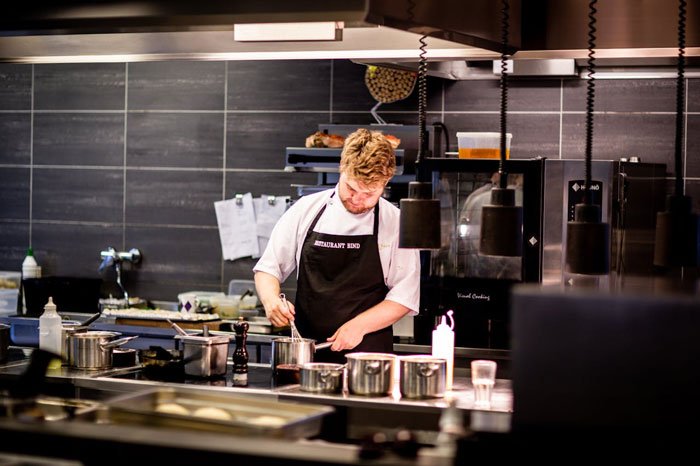
Image credits: Rene Terp / Pexels (not the actual photo)
But when things get slow, some people—like this cook—might be asked to carry out different tasks or even clock out altogether
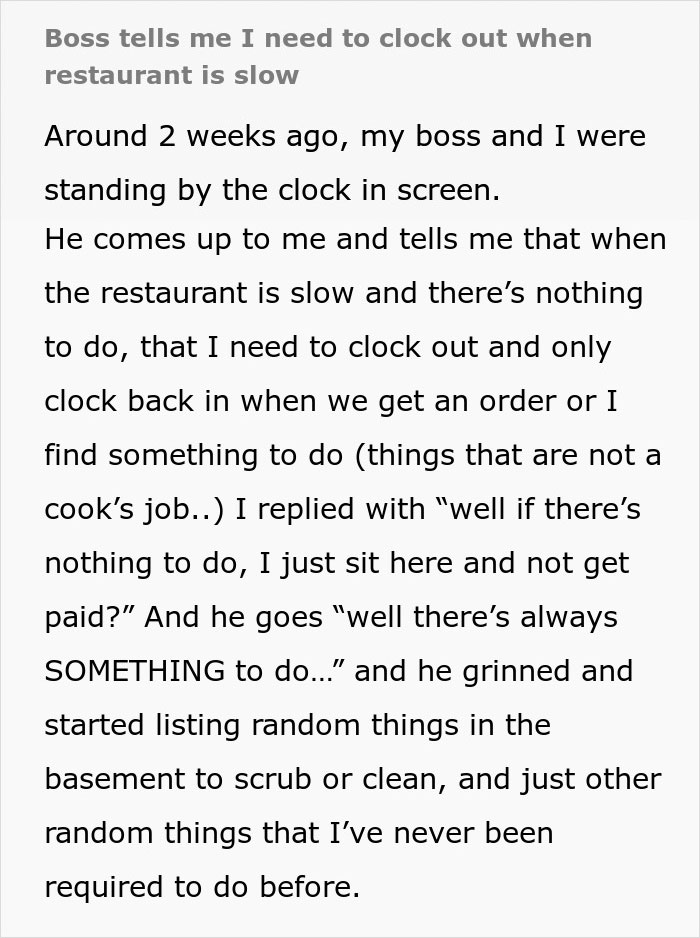
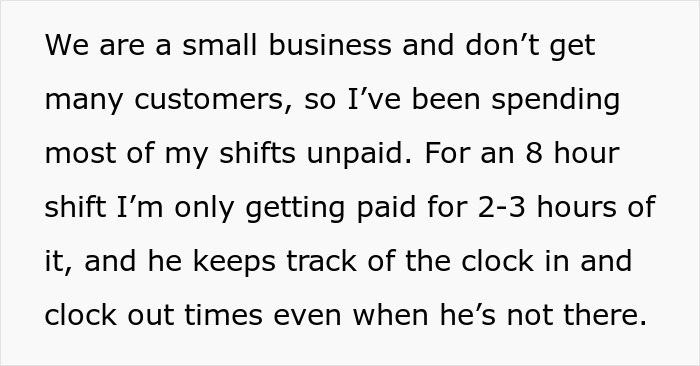

Image credits: RDNE Stock project / Pexels (not the actual photo)
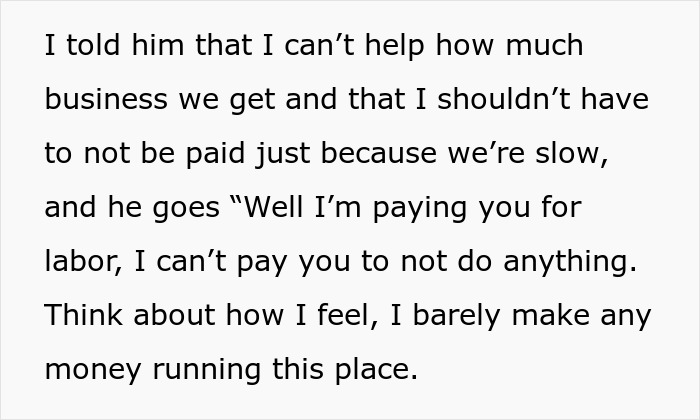
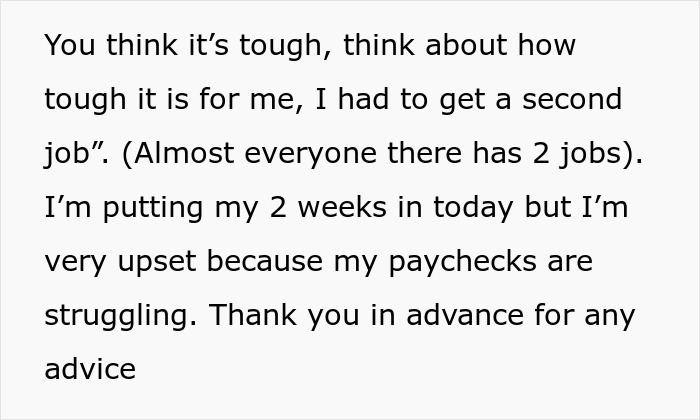
Image credits: awkward_cheddar

Image credits: Yuliana Kungurova / Pexels (not the actual photo)
Certain laws and rules regulate when the employee is expected to work and when they have the right not to
Clocking in and out is a somewhat regular practice for hourly workers. However, being asked to clock out when the restaurant gets slow arguably isn’t. After reading about the OP’s situation, quite a few netizens suggested that the boss asking his employees to do that might even be illegal.
One thing that is definitely illegal is working when off the clock. According to Clockify, off-the-clock work entails performing work duties outside of your official shifts—whether before or after—without any compensation. Some of the most common instances of people working off the clock include pre- or post-shift work, administrative tasks, redoing or fixing something, or working over your lunch break.
Even though different laws, like not working on your lunch break, are usually pretty clear and set for a reason, some employers might still try to bend them in a way that works to their favor. For example, some might ask employees to stay on the premises during their lunch break, but, according to SHRM (Society for Human Resource Management), doing that would equal being on-call, consequently making it compensable; and it’s safe to assume that not all employers who want their workers to stay on the premises over lunch break are willing to pay them to do that. Chances are, the OP’s boss asking them to clock out but stay at the restaurant falls under that same ‘on-call’ situation.

Image credits: Pixabay / Pexels (not the actual photo)
Today, the restaurant industry is far from booming
It’s pretty evident that the OP’s boss wasn’t going through the easiest of times, as neither was his business. But his restaurant isn’t the only place where things seem to have slowed down. According to the National Restaurant Association, the overall restaurant sales in the US were flat during the first third of this year, showing that the situation is not great for the restaurant industry as a whole.
“While overall restaurant sales were flat in recent months, menu prices continued to trend higher – albeit at a much slower pace than in 2022 and 2023. As a result, the trendline of real restaurant sales turned slightly negative. After adjusting for menu price inflation, eating and drinking place sales declined in 4 out of the last 5 months,” the association wrote on their website in May of 2024.
In addition to diminishing sales, the job growth in the industry appears to be slowing, too, Restaurant Business Online reports. This year, restaurants have reportedly added 10,000 new jobs per month, while just a year ago, in 2023, they would create an average of 26,000 per month. The numbers suggest that it might not be easy to find a job in the industry right now, but in the comments under the post, the OP shared that they have already put in their two weeks’ notice. Fellow netizens also shared their thoughts on the situation in the comment section.
Fellow netizens shared their thoughts in the comments, the OP replied to some of them
